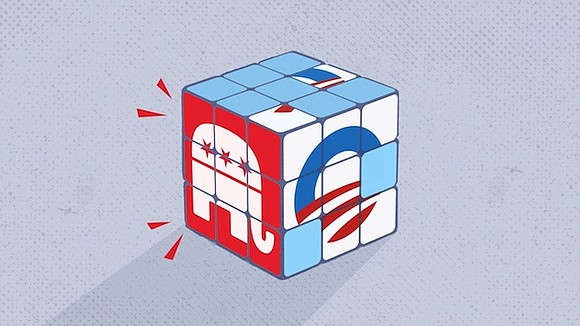Washington Awaits CBO Score of Senate Health Care Bill
CNN/Stylemagazine.com Newswire | 6/26/2017, 7:54 a.m.
By MJ Lee and Tami Luhby
CNN
(CNN) -- The Congressional Budget Office as soon as Monday will give its report of the Senate GOP health care bill, and the results may well determine the fate of the effort to repeal and replace Obamacare.
The highly anticipated score from the non-partisan agency will answer key questions about the impact of the Senate's controversial legislation that was made public last Thursday. The analysis will also offer clarity to wavering Senate Republicans on whether to vote for the bill later this week.
The report likely won't yield good headlines for Republicans.
The CBO score of the bill the House passed in May to repeal Obamacare produced several devastating headlines. The legislation would leave 23 million fewer Americans with health insurance by 2026 than under the Affordable Care Act, the CBO report said. It also predicted that while average premiums would be lower for the young and healthy, less healthy people would face "extremely high premiums."
Some Senate Republicans have been frustrated by Majority Leader Mitch McConnell's decision to craft the bill largely behind closed doors, and have also expressed concern that one week is hardly enough time to study a 142-page bill -- let alone the CBO report.
A spokeswoman for Maine GOP Sen. Susan Collins said the senator "has a number of concerns and will be particularly interested in examining the forthcoming CBO analysis on the impact on insurance coverage, the effect on insurance premiums, and the changes in the Medicaid program."
The report will also be closely scrutinized by Republicans lawmakers in the House, who will have to take up the Senate bill if it moves through the upper chamber.
"The principle concern is lowering the price of adequate health care insurance for hardworking Americans and I want to see the CBO score on that," said GOP Rep. Leonard Lance, who said he has "serious concerns" about the Senate bill. Lance did not vote for the House bill.
Health and Human Secretary Tom Price defended the Senate bill on CNN's State of the Union Sunday.
"The plan in its entirety will absolutely bring premiums down, because you increase competition, you increase choices for individuals," he said. "You allow folks to be able to purchase the kind of coverage that they want, not that the government forces them to buy."
But the CBO report is expected to show that many Americans, particularly those in their 50s and early 60s, would pay more under the Senate plan.
The bill would allow insurers to charge older enrollees up to five times the premiums of younger ones, compared to three times under Obamacare. Plus, it would tighten the eligibility threshold to receive federal subsidies. And, even if they qualify for subsidies, older enrollees would have to put a larger share of their income toward premiums than under Obamacare.
A preliminary estimate by the non-partisan Kaiser Family Foundation found that a 60-year-old earning $40,000 would see his premium jump thousands of dollars in most parts of the country under the Senate plan. That's because his premiums would be higher and his subsidy would be smaller, the analysis said.
In parts of Alaska, these changes would mean this 60-year-old would pay nearly $9,000 more a year for a silver policy, according to the Kaiser analysis, released Sunday. That's a 253% increase.
But it's not only older enrollees who would see big hikes. Kaiser found 40-year-olds earning the same amount would also pay more in many parts of the country. In Yuma County, Arizona, they would pay more than $2,100 more, or 52% more, because their subsidy would be less generous.
On the flip side, many younger Americans could see their premiums drop, and they could get heftier subsidies.
In Florence County, South Carolina, for instance, a 27-year-old making $40,000 a year would see his premium decline by more than $1,500 a year, or 38%, Kaiser found.




